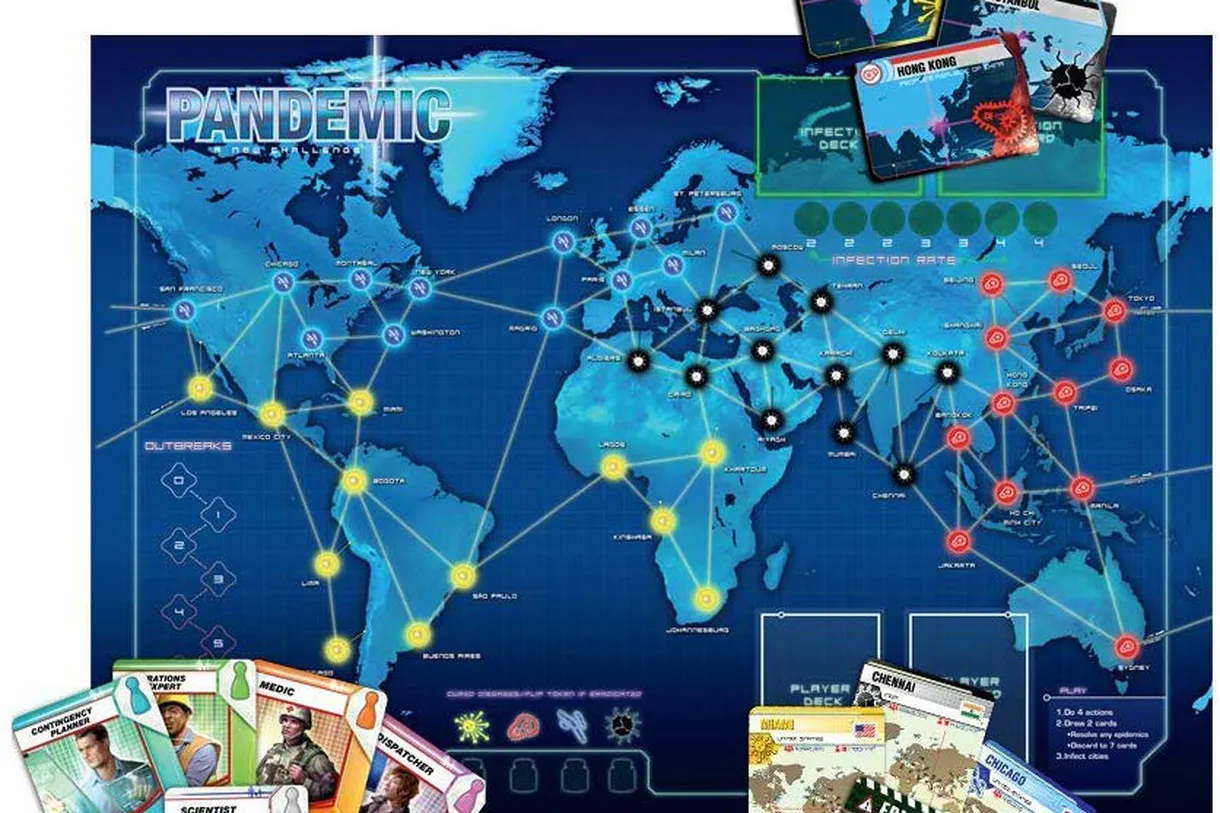I played Pandemic with some old friends from undergrad. We had played pandemic before while growing up, but it was our first time playing in a while.
I ended up trying to make sense of the rules for our group and it quickly worked itself out for a fun gameplay experience. We quickly got invested into the narrative of the story and the flow of managing the pandemic. We had different points where we each took charge of the conversation to try to create strategies to manage the pandemic. We had to try and keep track of each other’s roles and abilities and navigate the different conflict points of the game. At first, we seemed to be effectively managing the different conflict areas, splitting ourselves up to manage different parts of the map. However, some places quickly became overwhelmed, and we had to change strategies each round to optimize our game.
Unfortunately, we ended up losing the game in the end as we were overwhelmed by a few epidemic cards. However, we ended up having a lot of fun in the process of playing the game.
Cooperative Play in Pandemic:
I find the concept of cooperative play vs. the game environment extremely fascinating, particularly in a board game. I’ve played and watched several cooperative video games like divinity original sin 2, Left 4 Dead 2, and Don’t Starve Together. These games involve players overcoming challenges set by the game developers as they progress through levels or the story of the game. In these contexts, players have to discuss their options and cover each other’s back while following the rules of the game.
To me, cooperative board games are distinct from these sort of video games since the players are the ones interpreting the rules and mechanics and choosing to abide by them. There isn’t a game engine constraining the players and preventing them from cheating; it’s only each other. It feels like there’s a social contract between the players to respect the rules of the board game even if it means they would lose the game. In this respect, the goal is to have fun rather than simply to win.
Pandemic capitalizes on this interesting social contract by providing narrative and gameplay that promotes cooperation and strategy. Each player has different mechanics and tools at their disposal and have more intimate knowledge of their own playstyle. However, players also share information between each other of what they can do on their turn while paying attention to the board as well. As a result, players develop strategies and have to discuss them with each other. At the same time, the narrative of the game develops through the events and the spread of the virus. These two pieces work hand in hand to build the challenge and keep players engaged. It’s interesting since the game doesn’t seem to be balanced so that players win every time they play so players feel the challenge and have to recognize that they might not win but they enjoy the challenge.
Overall, I enjoyed the game and I feel like it gives me great ideas on how the dynamics between players can create a great cooperative experience.



